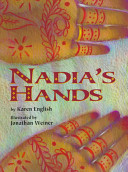
A Pakistani-American girl takes part in her aunt’s traditional Pakistani wedding.

A Pakistani-American girl takes part in her aunt’s traditional Pakistani wedding.
 When eleven-year old Shabanu, the daughter of a nomad in the Cholistan Desert of present-day Pakistan, is pledged in marriage to an older man whose money will bring prestige to the family, she must either accept the decision, as is the custom, or risk the consequences of defying her father’s wishes.
When eleven-year old Shabanu, the daughter of a nomad in the Cholistan Desert of present-day Pakistan, is pledged in marriage to an older man whose money will bring prestige to the family, she must either accept the decision, as is the custom, or risk the consequences of defying her father’s wishes.
This trilogy includes Shabanu, Haveli, and The House of Djinn.
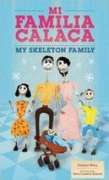
Welcome to the family! It’s just like yours: father, mother, sister, brother, abuelita, gato, even a great-great grandmother. Well, but there’s something just a little bit different about this particular family.
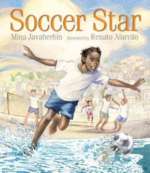
When Paulo Marcelo Feliciano becomes a soccer star, crowds will cheer his famous name! Then his mother won’t have to work long hours, and he won’t have to work all day on a fishing boat. For now, Paulo takes care of his little sister Maria (she teaches him reading, he teaches her soccer moves) and walks her to school, stopping to give his teammates cheese buns as they set out to shine people’s shoes or perform for the tourist crowd. At day’s end, it’s time to plan the game, where Givo will bounce, Carlos will kick, and Jose will fly! But when Jose falls on his wrist, will the team finally break the rules and let a girl show her stuff? Set in a country whose resilient soccer stars are often shaped by poverty, this uplifting tale of transcending the expected scores a big win for all.
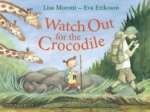
A delightful picture book about a father and daughter’ s trip into the wilderness, and how children can help parents see the world in a different way.
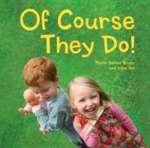
Boys do not cook, and girls cannot play sports–but in this book the pictures tell a different story. Using sparse text and large, bright photographs, the book debunks commonly-held gender-myths. Misconceptions are stated matter-of-factly (Boys don’t cook.), but when the page is turned, each myth is proven false with playful language (Are you sure?) and a contradictory photo (a male professional chef). This jacketless book is perfect for young readers as well as read-alouds and will generate discussions about gender-based assumptions around play and work.
Just what exactly is the “thing”? It is green—great and gorgeous green, dark and dangerous green, real mean green. Both a riddle and an ode to the earth, this picture book arrives just in time for Earth Day. Readers will revisit the world after the riddle’s reveal to find the many green things hidden in each piece of art.
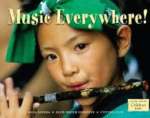
Photographs from around the world celebrate the universal joy that kids get from making music, whether they’re playing instruments, clapping their hands, stomping their feet, or singing.
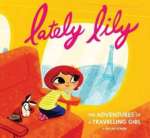
Lily takes her best friend Zeborah for a ride on one of her world travels.
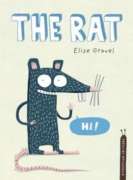
One in a series of humorous books about disgusting creatures, The Rat is a look at the black rat. It covers such topics as the rat’s long, agile tail (it’s good for balancing and picking noses), long teeth (they can chew through anything, including books) and disgusting taste in food (delicious electrical wires in tomato sauce, anyone?). Although silly and off-the-wall, The Rat contains real information that will tie in with curriculum.